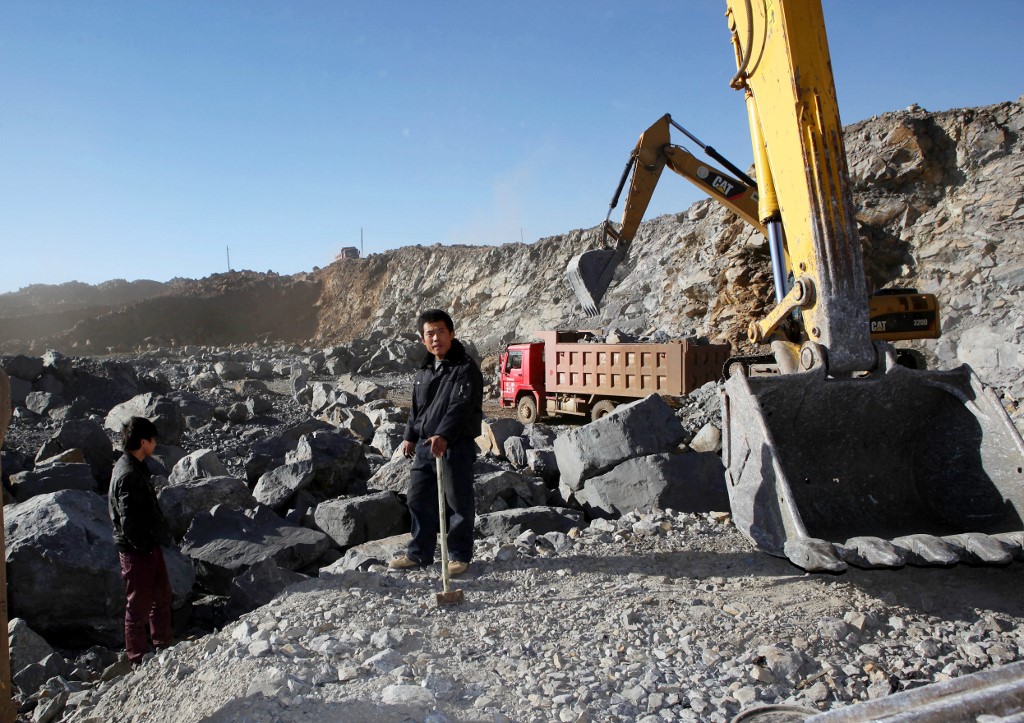(ATF) Listed rare earth companies are roaring ahead on China’s stock markets in the build up to new rare earth export rules expected in early December.
According to statistics from the Securities Times Databao, Northern Rare Earth (600111 ) saw ‘super-large single net inflows’ of 879 million yuan, on November 24 and ranked first among all other stocks.
Tianqi Lithium ( 002466 ) had a large net inflow of 346 million yuan, and ranked second.
China Reference News, a media outlet that translates foreign media and offers commentaries on international affairs is a popular Chinese news source, which provides public versions and versions provided to party members on a “need to know basis.”
Recently Reference News has collated foreign press items regarding the US “state of emergency” on rare earths, whereby the US is trying to find other sources as China directly provides 80% of the US’ rare earths, and another high percentage indirectly.
Decades ago the US used to be the world’s largest supplier of rare earths, until the 1980s, but crucially it lacks resources in 14 key rare earths – out of the 35 overall types of rare earth elements. Those not found in the US include gallium, an element used in light-emitting diodes and semiconductor chips.
Critical minerals are also used in low-tech sectors. China supplies half of the barite used in America, which was used to revolutionise the hydraulic fracturing technology (fracking) used by American oil producers.
Currently, the United States has only one rare earth production mine, the Mountain Pass rare earth mine in California, and there is no processing plant. It will take “many, many year” for the US to catch up to China on rare earth mining and processing according to Reference news.
However, the report also stated that in the past 20 years, the US government has been concerned about China’s dominance and hopes to catch up, but little progress has been made.
While the US holds the lead in technologies, China holds the lead in the raw materials needed to make those technologies. Both sides are racing to patent new rare earth applications, which are used in everything from TV screens to missile warheads.
The Mongolia-Russia fear
China’s main concern in its leading position is US moves to sidle up to Mongolia, which has the world’s second largest proven reserves. China had thought landlocked Mongolia was unable to be seduced, but Russian malfeasance – if it allows the US to ship rare earths out of Mongolia via Russia – keeps Chinese leaders awake at night.
The China Frontier Observer wrote about the special geographical location of Mongolia.
“It is located between China and Russia. It is a landlocked country. Even if the United States wants to use it for its own purposes, it dares not do it easily. After all, Russia is still watching. Furthermore, in the context of the epidemic, Mongolia generously donated and sent us 30,000 sheep. Unexpectedly, it turned around and sold rare earths to the United States. Russian experts directly shouted ‘Can it be shipped out?'”
In the context of the global fight against the epidemic, all countries cannot protect themselves from imported infections. Indeed, this – the coronavirus pandemic – is cited as one reason it is difficult to transport rare earths from Mongolia to the US.
In addition to land transportation, sea and air transportation are not cost-effective. Not only do you need to pay high fees, but you also need to process rare earths.
It is worth mentioning that the United States is accustomed to importing and has no rare earth processing facilities. Rare earth processing technology is immature in the US and there is no corresponding industrial chain.
If land transportation was to be used to take rare earths to the US from Mongolia, it would inevitably have to pass through Russia, but judging from the current tension between the United States and Russia, Moscow (Putin) would naturally not agree to this request. China does not even ask the question in regard to whether it would allow such exports.
In the eyes of China, the behaviour of Mongolian officials has indirectly threatened Russia’s security.
“Russia will naturally not choose to turn a blind eye, and will certainly obstruct the issue. As for the United States, it is an uneconomical business,” the Frontier Observer wrote.
While this ‘Mexican standoff’ continues, investors are reaping rewards in rare earth listed stock.
























